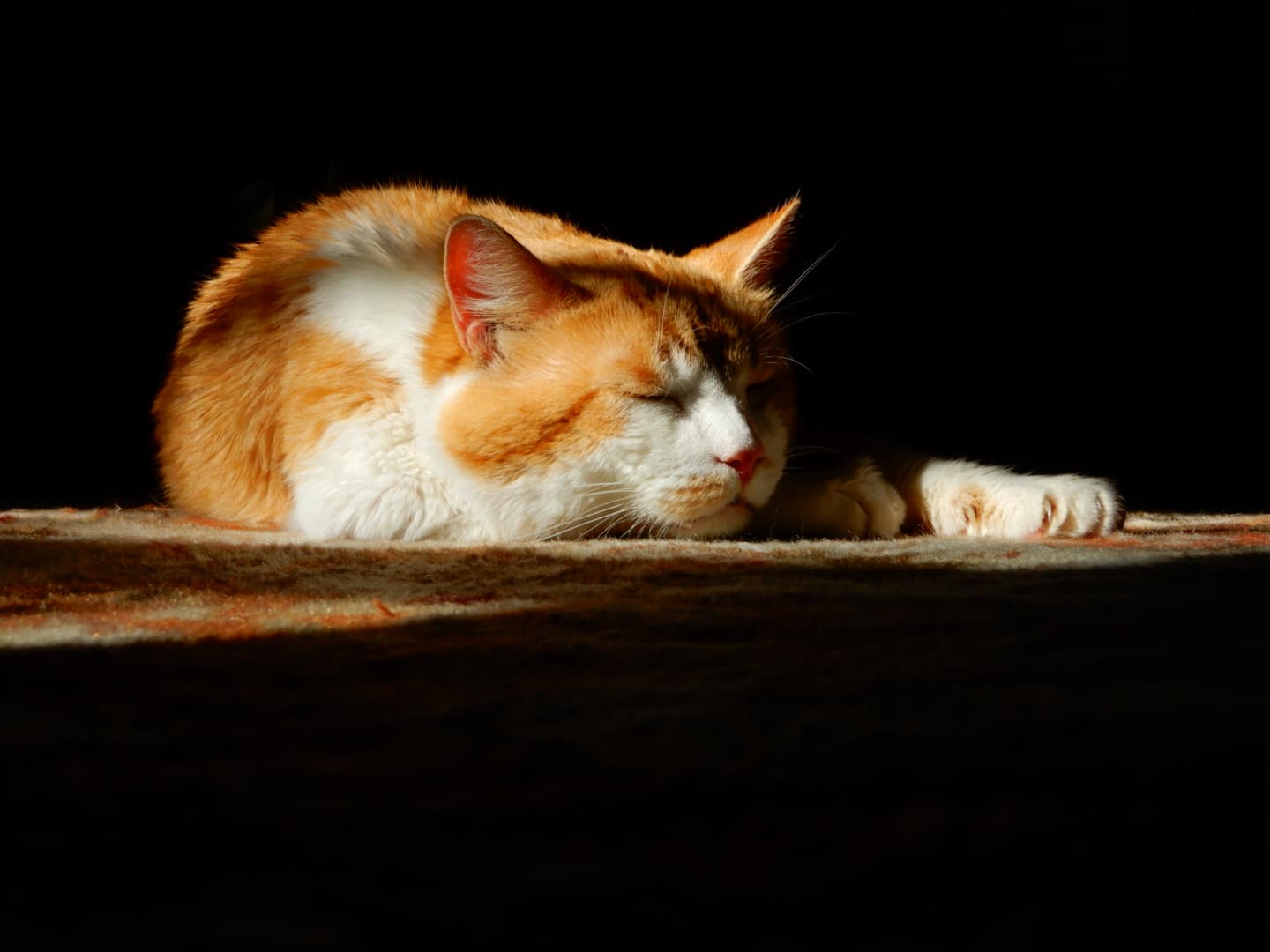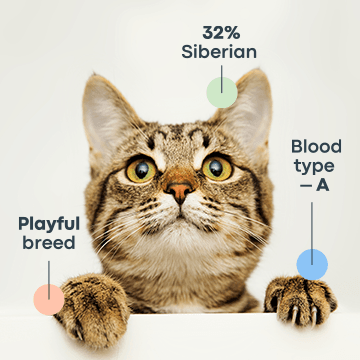What is Melatonin?
Melatonin is found in the pineal gland in humans and animals. It plays a vital role in regulating better sleep cycles. Melatonin production typically increases in response to darkness. It helps signal the body that it's time to wind down and prepare for sleep.
Can Cats Have Melatonin?
Melatonin is considered safe for cats with the proper dosage and guidance from your veterinarian. Many pet owners and veterinarians consider using melatonin supplements. It helps to address sleep-related issues, anxiety, and other conditions in cats. Melatonin supplements are usually used as an over-the-counter medication by humans as a sleep aid.
However, before incorporating melatonin into your cat's routine, it's essential to understand its benefits and potential risks.
The Benefits of Melatonin for Cats
Melatonin is primarily known for its role in promoting sleep, so it's no surprise that its potential benefits for cats revolve around sleep-related issues. Here are some situations where melatonin might offer relief:
Anxiety and Stress
Cats often feel anxious and stressed in situations like being in a carrier or going to the vet. Melatonin for cats can bring a sense of calmness to these moments. This helps your cat feel less scared and worried. Whether it's a ride in the carrier or a visit to the vet, melatonin could make these experiences easier for your furry friend.
Sleep Disorder
Just like humans, cats also suffer from sleep disorders due to various reasons. This leads to insomnia or irregular sleep cycles. Melatonin supplements can play a significant role in addressing these issues.
By introducing melatonin, you can regulate your cat's sleep patterns. It helps them enjoy more consistent and restful sleep. This is especially beneficial for cats who exhibit signs of sleep disturbances, such as excessive daytime sleepiness or nighttime restlessness.
Environmental Changes
Cats are known for their sensitivity to changes in their surroundings. Whether it's a new home, the addition of a new family member, or the rearrangement of furniture, such environmental changes can disrupt their sleep patterns.
Introducing melatonin during these transitions can help your cat adapt more smoothly to the new environment, minimizing the sleep disturbances resulting from such adjustments.
Senior Cats
As cats age, they can experience changes in their sleep patterns due to factors like health conditions and discomfort.
Melatonin could be a valuable tool in improving the sleep quality of senior cats. Melatonin may contribute to their overall well-being and comfort during their golden years by providing them with more restful nights.

Is Melatonin Safe for Cats? Side Effects
Melatonin is usually considered safe for cats when administered appropriately, and it's essential to exercise caution and consult with a veterinarian before introducing any new supplement into your cat's routine.
Side effects can include drowsiness, gastrointestinal upset, and changes in mood or behavior. It's crucial to use only melatonin supplements for pets and follow the recommended dosage.
How to Give Melatonin to Your Cat Safely
Administering melatonin to your cat requires a thoughtful approach, prioritizing their health and well-being. Careful attention to dosage, consultation with a veterinarian, and constant monitoring are essential. Here's how to give melatonin to your cat safely:
Consult Your Veterinarian
Before introducing melatonin to your cat's routine, it's crucial to consult your veterinarian. A professional assessment of your cat's health status will help a lot. It determines whether melatonin is an appropriate solution for your cat's needs.
Your veterinarian will consider factors like your cat's age, weight, existing health conditions, and any medications they may take. This step is essential to ensure that melatonin is safe and suitable for your cat's circumstances.
Choose the Right Product
When selecting a melatonin supplement for your cat, choose products specifically formulated for pets. It's recommended to consult your veterinarian before making a choice. They can provide insights into reputable and safe brands.
Avoid using human melatonin products, as the dosage and formulation intended for humans may not be suitable for feline physiology. Veterinarian-approved pet melatonin products are designed to meet the unique needs of cats.
Follow Dosage Guidelines
Dosage can vary based on your cat's age, size, and health condition. Your veterinarian will provide you with precise dosing instructions. It's essential to stay within the recommended dose.
Monitor for Effects
After administering melatonin, observe your cat for any unusual reactions. If you notice changes or effects, contact your veterinarian immediately.
Stick to a Schedule
If melatonin is recommended for your cat, maintain a consistent schedule for administration. Administer the supplement at the same time each day to establish a reliable routine. Consistency is the key to helping your cat adjust to the supplement and establish a regulated sleep pattern.
Melatonin Dosage Chart for Cats
To determine the proper melatonin dosage for your cat, your veterinarian will typically use a formula that uses your pet’s weight as factor:
Cat Weight (lbs) | Melatonin Dosage (mg) |
5 - 7 | 0.25 - 0.5 |
8 - 10 | 0.5 - 0.75 |
11 - 15 | 0.75 - 1.0 |
16 - 20 | 1.0 - 1.25 |
21 - 25 | 1.25 - 1.5 |
26 - 30 | 1.5 - 1.75 |
31 - 35 | 1.75 - 2.0 |
36 - 40 | 2.0 - 2.25 |
41 - 45 | 2.25 - 2.5 |
Final Thoughts
Hopefully, now you got the answer for your question, “Can I give my cat melatonin?”
The idea of using melatonin to improve sleep and reduce anxiety has gained traction in the quest to provide the best care for our feline companions.
While melatonin can benefit cats, it's crucial to approach its use with caution and veterinary guidance. Consulting your veterinarian and selecting the right product is vital.
It helps adhere to proper dosage, and monitoring your cat's response will help ensure a safe and positive experience. Remember, a well-rested and content cat leads to a happier and healthier furry friend.
Frequently Asked Questions
Can I give a cat melatonin?
Yes, you can give melatonin to cats, but only under the guidance of a veterinarian.
Is melatonin safe for cats?
Melatonin can be safe for cats when used under the guidance and supervision of a veterinarian, but its use should not be initiated without professional advice due to potential variations in dosages and individual sensitivities.
How much melatonin is safe for cats?
The safe melatonin dosage for cats varies based on weight, age, and health. Your veterinarian will determine the appropriate amount.
What happens if you give a cat a human melatonin?
It's not recommended to give human melatonin to cats. The dosage is different and can be unsafe for them.





